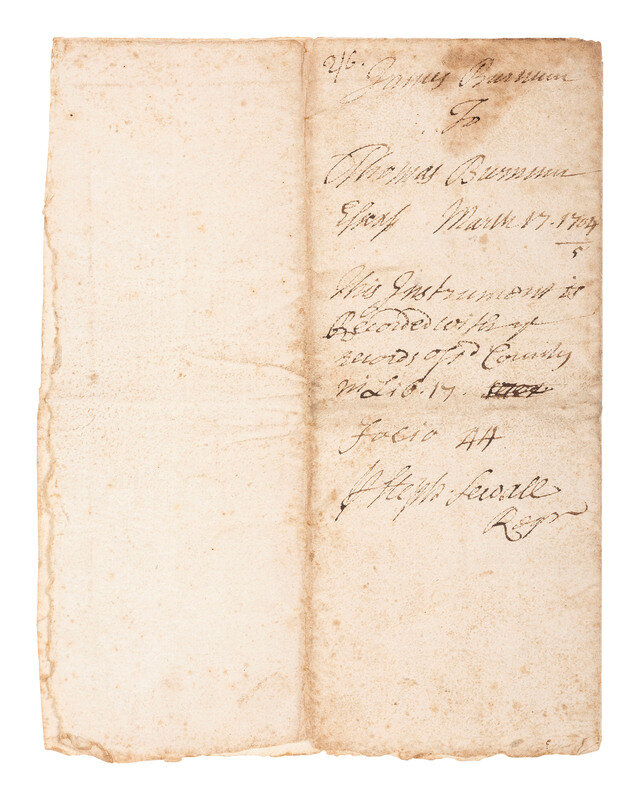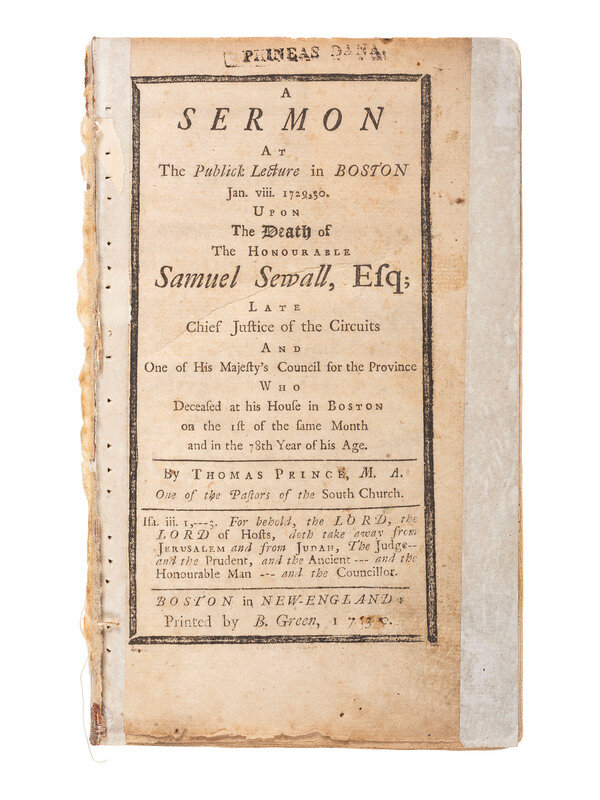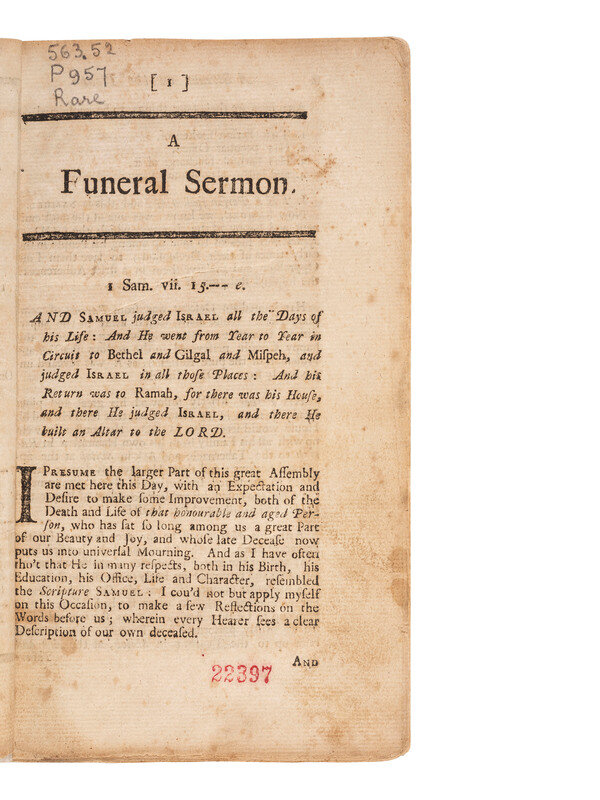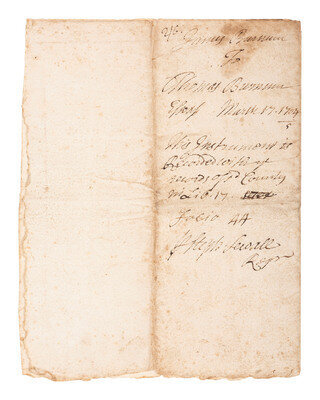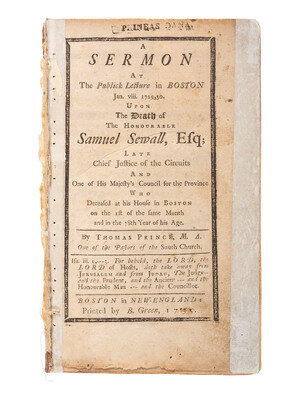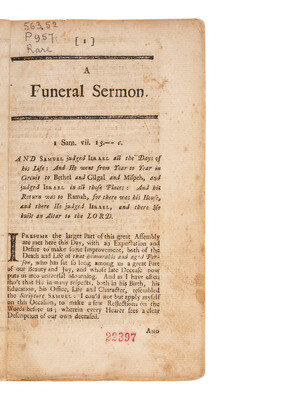Condition Report
Contact Information
Auction Specialist
Lot 301
[SALEM WITCH TRIALS]. SEWALL, Stephen (1657-1725). Docket signed, plus.
Sale 2057 - American Historical Ephemera and Photography
Oct 25, 2024
10:00AM ET
Live / Cincinnati
Own a similar item?
Estimate
$700 -
1,000
Price Realized
$826
Sold prices are inclusive of Buyer’s Premium
Lot Description
[SALEM WITCH TRIALS]. SEWALL, Stephen (1657-1725). Docket signed, plus.
Docket signed ("Steph Sewall") as Recorder for Essex County, Massachusetts. 17 March 1704.
1p, 8 x12 in., docket without original enclosure, note and signature at center panel "This instrument is Recorded with [?] records of sd County...Steph Sewall."
[With:] Two scarce colonial imprints: PRINCE, Thomas. "A Sermon at the Publick Lecture in Boston Jan. viii. 1729, 30. Upon the Death of the Honourable Samuel Sewall, Esq., Late Chief Justice of the Circuits and One of His Majesty's Council for the Province Who Deceased at his House in Boston on the 1st of the same Month and in the 78th Year of his Age." Boston: Printed by B. Green, 1730. Approx. 4 3/4 x 7 7/8 in., 36 pp, plus printed front title page. Disbound. Archival reinforcing strip affixed to the right and left edges of the front title page; red serial number handstamp at bottom of p1. Contents generally clean, with scattered spotting. --
Accompanied by "AN ACCOUNT of the Deceased From the Weekly News-Letter, No. 158. Corrected. Boston, January 8, 1729,30." 4pp, approx. 4 3/4 x 7 7/8 in., and apparently bound at one time with the Sermon by Prince. Small scattered stains, archival reinforcing strip affixed to the left edge of the last page.
Major Stephen Sewall was Clerk of the Court at the Salem Witch Trials. Despite his role, he was less taken in by the hysteria than other members of the court. This includes his brother, Samuel Sewall, who served as a judge during the infamous trials of 1692-1693 the result of which nineteen people were ultimately executed for witchcraft. Samuel Sewall later apologized for his role in the trials, and is also known for his essay, "The Selling of Joseph" (1700), which criticized slavery.
